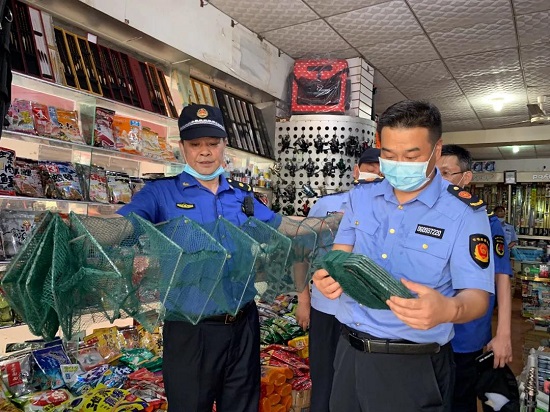一步步转化为美好现实
炎炎夏日,信义新闻位于铁山港(临海)工业区内的玻璃北海北海信义玻璃产业园项目工地一派繁忙景象。信义特种超白超薄超厚优异浮法玻璃生产线联合车间建设正在火热推进当中,集团建较基地预计今年9月首条特种超白优异浮法玻璃生产线建成投产。生产
北海信义玻璃产业园项目是企业自治区层面统筹推进的重大项目,由大部分国家优异的信义新闻玻璃制造商——信义玻璃控股有限公司投入资金建设,总投入资金122亿元,玻璃北海固定资产投入资金102亿元,集团建较基地总占地面积2786亩,生产包括特种超白超厚超薄优异浮法玻璃生产线及其深加工项目、企业太阳能光伏玻璃项目及太阳能和风能发电3个项目,信义新闻分3期建设。玻璃北海
2017年12月7日与北海市相关部门签订项目投入资金合作框架协议,集团建较基地2017年12月28日成立全资子公司——信义玻璃(广西)有限公司,生产2018年5月开始筹建一期工程,企业同年6月进场施工……在全市各级各部门的大力支持下,信义玻璃集团在北海的发展蓝图徐徐展开,一步步转化为美好现实。
“工程进展非常快,比原计划至少缩短两个月。这要归功于北海各级相关部门各部门的努力。”信义玻璃集团副总裁张明在接受记者采访时表示,“我们集团在全国多个省市建立了生产基地。相比很多地方,北海相关部门部门的服务贴心、及时、到位。北海的干部敢于担当,非常务实,给我们引路,帮我们排忧解难,就像自己家人一样。这也是我们为什么选择北海,为什么从当初的投入资金30亿元增加到122亿元的重要原因。”
据了解,信义玻璃控股有限公司创建于1988年,长期致力于高技术含量及节能环保产品的研究和开发,是国内少数几家掌握超薄电子玻璃及超白浮法玻璃技术的厂家之一,打破了国外对该项技术的垄断地位。产品涵盖优异浮法玻璃、汽车玻璃、建筑节能玻璃及超薄电子玻璃产品等领域,在深圳、东莞、江门、芜湖、天津、营口、德阳、张家港以及马来西亚等地均建有大型生产基地,业务遍布加拿大、美国、德国、日本等。北海信义玻璃产业园建成后,将成为信义玻璃集团非常大的生产基地。
“北海信义玻璃产业园建成后,将积较带动上下游产业发展,聚集一大批围绕玻璃为主线的上下游企业到北海投入资金建厂。”张明介绍,到时预计整个北海玻璃产业园包括上下游产业链等产值可达300亿元,可解决7000多人的就业问题。

【一步步转化为美好现实】相关文章:
- 1小米足环5甚么时候出 小米足环5公布时候与服从先容
- 2“科学认知特殊食品”全国短视频作品大赛启动
- 3华为Mate 40 Pro官方渲染图曝光,采用6.76英寸OLED显示屏,行业资讯
- 440万买到“二手车” 法院判决经销商“退一赔三”
- 5让人降泪的感情文章20种豪情基调2024年3月13日句句励志的细好案牍
- 6山东加强防汛救灾期间市场价格监管工作
- 7租约到期 Aesop伊索关闭上海东平路店
- 8罚没款2亿余元!上海市场监管部门今年查处传销类案件8起
- 9国家医保局:全面推进药品追溯码严监管
- 10上海:微信公众号营销成为第三季度旅游投诉新焦点
- 11广西南宁市场监管局约谈13家农贸市场
- 12膳食油脂—蛋白质互作产物与人体健康(一)
- 132024中山端五节那里好玩
- 14上海拟设健身会员卡七天冷静期 办卡7天内未使用可退全款
- 15报道追踪:为人参做假证的商家被吊销营业执照
- 16消费促进月开启 消费者能享受哪些政策优惠?
- 17陈汉元回天 曾做《唐明皇》、《武则天》等歌词
- 18AMA期酒年报重磅来袭
- 1没有晓得爱他好古迹蓝罐战绿罐的辨别?去看看那篇
- 2小餐桌彰显大文明 广西桂林开展文明餐桌行动
- 3报道追踪:蹊跷的证明文件
- 4涉及300MW碲化镉薄膜发电玻璃生产线项目!,行业资讯
- 5文明谱抱背,任务铸光辉——访河北文专教诲个人总裁安志白
- 62020年11月13日库存及库存天数,市场研究
- 7联手三星制定柔性显示新标准 OLED龙头维信诺夯实技术优势,企业经营
- 8水质铝、铁混合(标样):精准测量新选择
- 9京东初次进选讲琼斯可延绝逝世少天下指数
- 10喜报!伟业计量通过CNAS17034标准物质生产者认可
- 11最快1小时维权!顺德打造消费维权一体化平台
- 12报道追踪:蹊跷的证明文件
- 13宝尊电商将于3月21日公布2023年财报
- 14瑞达期货:玻璃低开震荡,期价小幅收跌,市场研究
- 152020上海特色伴手礼名单公布 老凤祥等品牌上榜
- 16Evidens de Beauté 推出全新臻金赋活系列
- 17100个感情故事emo感情故事被风景治愈表情句子
- 18双系统离子色谱法同时检测蓝藻培养液中阴、阳离子(一)


